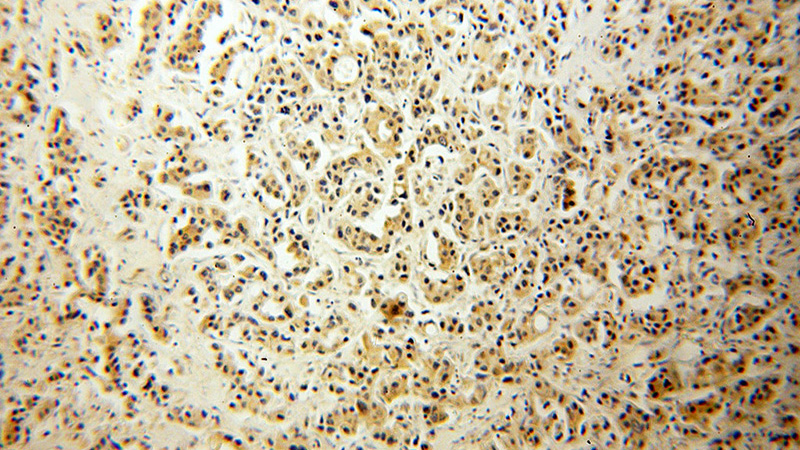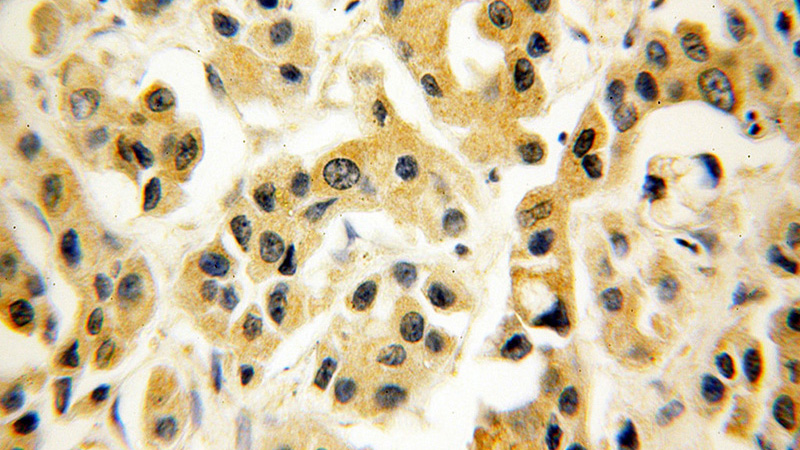-
Product Name
Casein Kinase 1 epsilon antibody
- Documents
-
Description
Casein Kinase 1 epsilon Rabbit Polyclonal antibody. Positive IHC detected in human breast cancer tissue, human heart tissue, human kidney tissue, human ovary tissue, human testis tissue.
-
Tested applications
ELISA, IHC
-
Species reactivity
Human,Mouse,Rat; other species not tested.
-
Alternative names
Casein Kinase 1 epsilon antibody; casein kinase 1 antibody; epsilon antibody; CKI epsilon antibody; CKIe antibody; CSNK1E antibody; HCKIE antibody
-
Isotype
Rabbit IgG
-
Preparation
This antibody was obtained by immunization of Casein Kinase 1 epsilon recombinant protein (Accession Number: NM_152221). Purification method: Antigen affinity purified.
-
Clonality
Polyclonal
-
Formulation
PBS with 0.1% sodium azide and 50% glycerol pH 7.3.
-
Storage instructions
Store at -20℃. DO NOT ALIQUOT
-
Applications
Recommended Dilution:
IHC: 1:20-1:200
-
Validations

Immunohistochemical of paraffin-embedded human breast cancer using Catalog No:108866(CSNK1E antibody) at dilution of 1:50 (under 10x lens)

Immunohistochemical of paraffin-embedded human breast cancer using Catalog No:108866(CSNK1E antibody) at dilution of 1:50 (under 40x lens)
-
Background
CSNK1E(Casein kinase I isoform epsilon) is also named as CKIe, CKI-epsilon and belongs to the casein kinase I subfamily. It plays a significant role in delaying the negative feedback signal within the transcription-translation-based autoregulatory loop that composes the core of the circadian mechanism and makes an ideal target for pharmaceutical compounds influencing circadian rhythms, sleep, and jet lag, as well as other physiologic and metabolic processes under circadian regulation(PMID:10775102). It can be autophosphorylated(PMID:19690332).
-
References
- Chen H, Ma H, Inuzuka H. DNA damage regulates UHRF1 stability via the SCF(β-TrCP) E3 ligase. Molecular and cellular biology. 33(6):1139-48. 2013.
Related Products / Services
Please note: All products are "FOR RESEARCH USE ONLY AND ARE NOT INTENDED FOR DIAGNOSTIC OR THERAPEUTIC USE"
